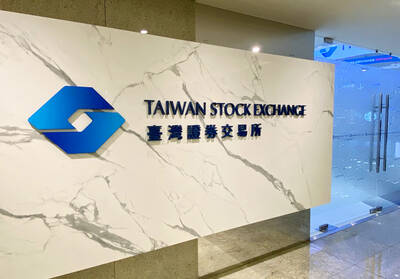The Ministry of Economic Affairs yesterday published a list of approved food delivery service providers as part of a plan to help local restaurants expand their reach in light of the challenges brought by the COVID-19 pandemic.
“During the current crisis, people are not eating out … so the plan is to help restaurants and especially small eateries offer delivery services, which can in turn drive digital transformation,” Department of Commerce Director-General Lee May (李鎂) told a news conference in Taipei yesterday.
The ministry has approved five food delivery service providers — Yowoo Technology Inc (有無科技); SignMi Ltd (賽米資訊), which operates under the brand name Cutaway; Connection Labs Ltd (專聯科技), which uses the brand name Foodomo; Inline Ltd (樂排股份); and Global Express Ltd (全球快遞).
The service providers are to list restaurants’ menus for free and are reducing their commissions from between 25 and 35 percent to 15 percent, Lee said.
Restaurants are to receive a maximum subsidy of NT$15,000 (US$498) and they can choose from the various services the companies provide, from simple deliveries to more advanced complex marketing, Lee said.
The subsidies are to be paid directly to delivery service providers to reduce the administration required to be performed by restaurants, Lee said, adding that the plan is nonetheless aimed at subsidizing the latter.
Asked about the absence of Uber Technology Inc’s Uber Eats and Delivery Hero SE’s Foodpanda, the nation’s predominant food delivery service providers, Lee said that both companies could join in on the plan at a later date.
“There will not only be one list … there will be a second one and a third,” Lee said.
Meanwhile, the ministry yesterday approved investments by 11 small and medium-sized enterprises via a government program to encourage local companies to invest in Taiwan.
Top Most Technology Co Ltd (騰升科技), Zealio Electronics Co Ltd (智佳電子), Puretek Manufacturing Co Ltd (品岳科技), Ren Chin Electric Conductor Co Ltd (仁親銅導體), Win Home Technology Co Ltd (永賀能源), Tai An Food Co Ltd (泰安食品), Hong Ming Enterprise Co Ltd (豐盟企業), GE Technology Inc (奇異科技), Jiann-Chang Food Co Ltd (建昌食品), Joy Paper Co Ltd (久誼公司) and He Xun Biosciences Co Ltd (和迅生命科學), which specialize in multiple industries ranging from semiconductors and traditional manufacturing to food processing and biomedical, are to invest a combined NT$3.5 billion by expanding or upgrading their production facilities in Taiwan, the ministry said.
The government program, which was launched in July last year, has to date approved NT$86.9 billion of investments by 195 companies.

Taiwan Semiconductor Manufacturing Co (TSMC, 台積電) secured a record 70.2 percent share of the global foundry business in the second quarter, up from 67.6 percent the previous quarter, and continued widening its lead over second-placed Samsung Electronics Co, TrendForce Corp (集邦科技) said on Monday. TSMC posted US$30.24 billion in sales in the April-to-June period, up 18.5 percent from the previous quarter, driven by major smartphone customers entering their ramp-up cycle and robust demand for artificial intelligence chips, laptops and PCs, which boosted wafer shipments and average selling prices, TrendForce said in a report. Samsung’s sales also grew in the second quarter, up

LIMITED IMPACT: Investor confidence was likely sustained by its relatively small exposure to the Chinese market, as only less advanced chips are made in Nanjing Taiwan Semiconductor Manufacturing Co (TSMC, 台積電) saw its stock price close steady yesterday in a sign that the loss of the validated end user (VEU) status for its Nanjing, China, fab should have a mild impact on the world’s biggest contract chipmaker financially and technologically. Media reports about the waiver loss sent TSMC down 1.29 percent during the early trading session yesterday, but the stock soon regained strength and ended at NT$1,160, unchanged from Tuesday. Investors’ confidence in TSMC was likely built on its relatively small exposure to the Chinese market, as Chinese customers contributed about 9 percent to TSMC’s revenue last

Taiwan and Japan will kick off a series of cross border listings of exchange-traded funds (ETFs) this month, a milestone for the internationalization of the local ETF market, the Taiwan Stock Exchange (TWSE) said Wednesday. In a statement, the TWSE said the cross border ETF listings between Taiwan and Japan are expected to boost the local capital market’s visibility internationally and serve as a key for Taiwan becoming an asset management hub in the region. An ETF, a pooled investment security that is traded like an individual stock, can be tracked from the price of a single stock to a large and

Despite global geopolitical uncertainties and macroeconomic volatility, DBS Bank Taiwan (星展台灣) yesterday reported that its first-half revenue rose 10 percent year-on-year to a record NT$16.5 billion (US$537.8 million), while net profit surged 65 percent to an unprecedented NT$4.4 billion. The nation’s largest foreign bank made the announcement on the second anniversary of its integration with Citibank Taiwan Ltd’s (花旗台灣) consumer banking business. “Taiwan is a key market for DBS. Over the years, we have consistently demonstrated our commitment to deepening our presence in Taiwan, not only via continued investment to support franchise growth, but also through a series of bolt-on acquisitions,” DBS